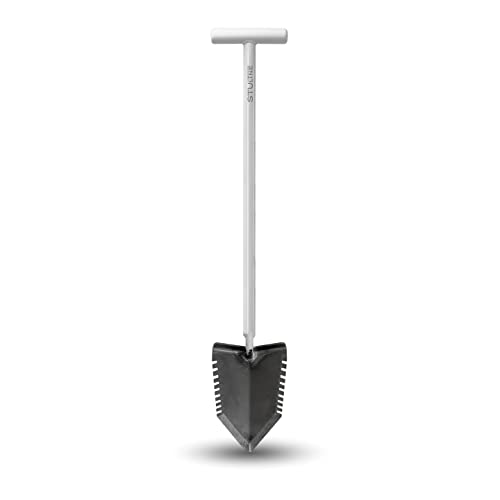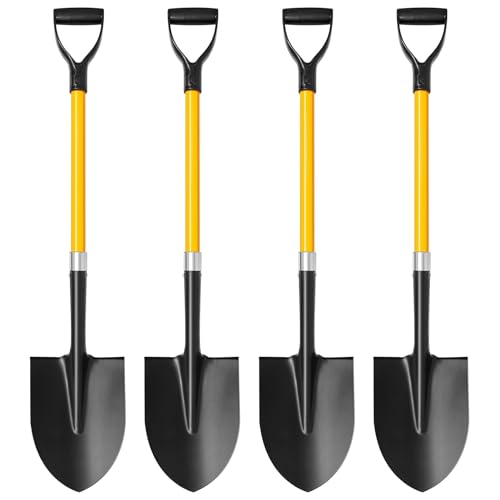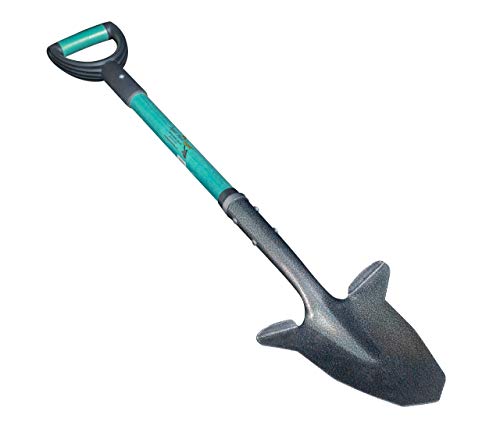


If you live in a snowy area, you know that shoveling snow can be a strenuous and time-consuming task. But did you know that it’s also a great workout? Shoveling snow burns calories and can help you stay in shape during the winter months. In fact, it’s considered a moderate- to high-intensity cardiovascular exercise that can boost your heart rate and strengthen your muscles.
So, how many calories does shoveling snow burn? The exact number depends on various factors, such as your weight, the intensity of the activity, and the duration of the shoveling session. However, on average, a person weighing around 155 pounds can burn approximately 223 calories per 30 minutes of shoveling snow.
It’s important to note that shoveling snow can be physically demanding, especially if you’re not used to regular exercise. Therefore, it’s essential to warm up before starting and take breaks when needed. Additionally, using proper shoveling techniques and equipment can help prevent injuries and make the task more efficient.
So, the next time it snows, don’t dread the chore of shoveling. Instead, view it as an opportunity to burn some calories and get a good workout. Just remember to stay safe, take breaks when necessary, and enjoy the winter wonderland!
Calories burned while shoveling snow: A calculator
Shoveling snow can be a strenuous activity, requiring a significant amount of physical effort. As such, it can be a great way to burn calories and get some exercise in during the winter months. If you’re curious about how many calories you’re burning while shoveling snow, you can use the following calculator to get an estimate.
To use the calculator, simply input your weight in pounds and the amount of time you spent shoveling snow in minutes. The calculator will then provide you with an estimate of how many calories you burned. Keep in mind that this is just an estimate, and the actual number of calories burned may vary depending on factors such as your metabolism and the intensity of the activity.
It’s important to note that shoveling snow can be a physically demanding activity, so it’s important to take safety precautions. Make sure to dress warmly, take breaks when needed, and listen to your body. If you have any health concerns or medical conditions, it’s always a good idea to consult with a healthcare professional before engaging in any strenuous physical activity.
So if you’re ready to find out how many calories you’re burning while shoveling snow, use the calculator below and get moving!
Snow shoveling and calorie burning: The connection
Snow shoveling is not only a necessary task during winter, but it can also be a great way to burn calories and stay fit. The physical effort required to shovel snow can provide a challenging workout that engages multiple muscle groups and boosts cardiovascular health.
The calorie-burning benefits of snow shoveling
Shoveling snow is a vigorous activity that can help you burn a significant amount of calories. The number of calories burned depends on various factors such as your weight, the intensity of the shoveling, and the duration of the activity. On average, a person weighing around 155 pounds (70 kg) can burn approximately 223 calories in 30 minutes of snow shoveling.
To put this into perspective, this is equivalent to the number of calories burned during 30 minutes of moderate-intensity cycling or playing tennis.
The muscle groups engaged during snow shoveling
Snow shoveling is a full-body workout that engages several major muscle groups. The primary muscles used include the shoulders, arms, chest, core, and legs. The repetitive movements required for shoveling also provide an excellent opportunity to improve muscular endurance and strength.
It is important to note that proper form and technique are crucial to avoid injury while shoveling. Using your legs and hips to lift the snow, rather than relying solely on your back, can help minimize strain and reduce the risk of back pain.
Tips for maximizing calorie burn while shoveling snow
If you want to maximize the calorie-burning benefits of snow shoveling, consider the following tips:
- Warm up your muscles before starting to shovel, as this can help reduce the risk of injury.
- Take frequent breaks and stay hydrated to maintain optimal energy levels.
- Use a shovel that is the right size and weight for you to minimize unnecessary strain.
- Engage your core muscles by contracting your abdominals while shoveling.
- Vary your shovel technique by switching between lifting and pushing the snow to engage different muscle groups.
- Finish your shoveling session with a proper cool-down to help your muscles recover.
A final word
Snow shoveling can be a challenging yet rewarding activity, providing both practical and health benefits. However, it is essential to listen to your body and avoid overexertion. If you have any underlying medical conditions or concerns, it is always advisable to consult with a healthcare professional before engaging in any strenuous physical activity.
So, next time you grab a shovel to clear your driveway, remember that you are not only keeping your surroundings safe, but you are also giving yourself a great workout.
How to calculate calories burned while shoveling snow
Shoveling snow is not only a necessary chore during winter but also a great way to burn calories and stay active. The amount of calories burned while shoveling snow depends on various factors, including your weight, the intensity of the activity, and the duration of shoveling.
To calculate the calories burned while shoveling snow, you can use a simple formula:
- Estimate your weight in pounds.
- Find the MET (Metabolic Equivalent of Task) value for shoveling snow, which is approximately 6.0.
- Divide your weight by 2.2 to convert it to kilograms.
- Multiply your weight in kilograms by the MET value for shoveling snow.
- Multiply the result by the duration of shoveling in hours.
- The final result will give you the approximate number of calories burned while shoveling snow.
For example, if you weigh 150 pounds and shovel snow for 1 hour, the calculation would be as follows:
- 150 lbs / 2.2 = 68.18 kg
- 68.18 kg * 6.0 MET = 409.09 calories burned per hour
Keep in mind that these calculations are approximations and can vary depending on individual factors such as fitness level and technique. It’s also important to listen to your body and take breaks when needed to avoid overexertion or injury.
By using this simple formula, you can get an estimate of the calories burned while shoveling snow, helping you track your progress and stay motivated during the winter months.
Factors affecting calorie burn during snow shoveling
Several factors can influence the number of calories burned during snow shoveling. These factors include:
1. Intensity of the activity
The intensity at which you shovel snow plays a significant role in determining the number of calories burned. The more vigorously you shovel, the more energy your body requires, resulting in a higher calorie burn.
2. Body weight and composition
Individuals with a higher body weight tend to burn more calories while shoveling snow compared to those with a lower body weight. Additionally, individuals with higher muscle mass generally have a higher metabolic rate, leading to increased calorie expenditure during physical activities like shoveling.
3. Age and gender
Age and gender can also impact the number of calories burned during snow shoveling. Younger individuals, especially teenagers and young adults, tend to have a higher metabolic rate and therefore burn more calories. Men generally burn more calories than women due to their higher muscle mass and overall body size.
4. Fitness level
Your fitness level plays a role in the number of calories burned during snow shoveling. Individuals who are physically fit and regularly engage in cardiovascular exercise are more efficient at burning calories during physical activities.
| Factor | Description |
|---|---|
| Intensity of the activity | The level of exertion during snow shoveling |
| Body weight and composition | Higher body weight and muscle mass can increase calorie burn |
| Age and gender | Younger age and male gender tend to burn more calories |
| Fitness level | Higher fitness levels result in more efficient calorie burning |
Tips for Maximizing Calorie Burn while Shoveling Snow
Shoveling snow can be a great workout and can burn a significant amount of calories. Here are some tips to maximize your calorie burn while shoveling snow:
- Warm up before you start: Before you grab your shovel and head out into the cold, it’s important to warm up your muscles. Doing a few stretches and light exercises can help prevent injuries and prepare your body for the physical activity ahead.
- Use proper shoveling techniques: To minimize the strain on your muscles, make sure to use proper shoveling techniques. Bend your knees and lift with your legs instead of your back. Take frequent breaks and avoid twisting motions that can put additional stress on your spine.
- Pace yourself: Shoveling snow can be a demanding task, so it’s important to pace yourself. Do not rush or overexert yourself. Take breaks as needed and listen to your body. If you feel tired or experience any pain, it’s time to take a rest.
- Engage your core: Shoveling snow is not just a workout for your arms and legs, it can also engage your core muscles. To maximize calorie burn, focus on engaging your abdominal muscles while shoveling. This can help strengthen your core and increase the intensity of the exercise.
- Make it a full-body workout: Instead of just using your arms to shovel snow, try incorporating your whole body into the movements. Engage your legs, hips, and shoulders to make it a full-body workout. This can help burn more calories and evenly distribute the workload.
- Stay hydrated: Even in cold temperatures, it’s important to stay hydrated. Drink water before and after shoveling to replenish your body and avoid dehydration. Dehydration can decrease performance and increase the risk of muscle cramps and fatigue.
- Dress appropriately: Dress in layers to keep warm while shoveling, but avoid heavy clothing that can restrict your movements. Opt for moisture-wicking fabrics that can help keep you dry and comfortable. Don’t forget to wear a hat, gloves, and proper footwear for added protection.
- Listen to your body: Pay attention to how your body feels during and after shoveling. If you experience any pain, dizziness, or shortness of breath, stop immediately and seek medical assistance if needed. It’s important to prioritize your safety and well-being.
By following these tips, you can not only burn calories but also reduce the risk of injuries while shoveling snow. Stay safe and enjoy the benefits of this winter workout!






